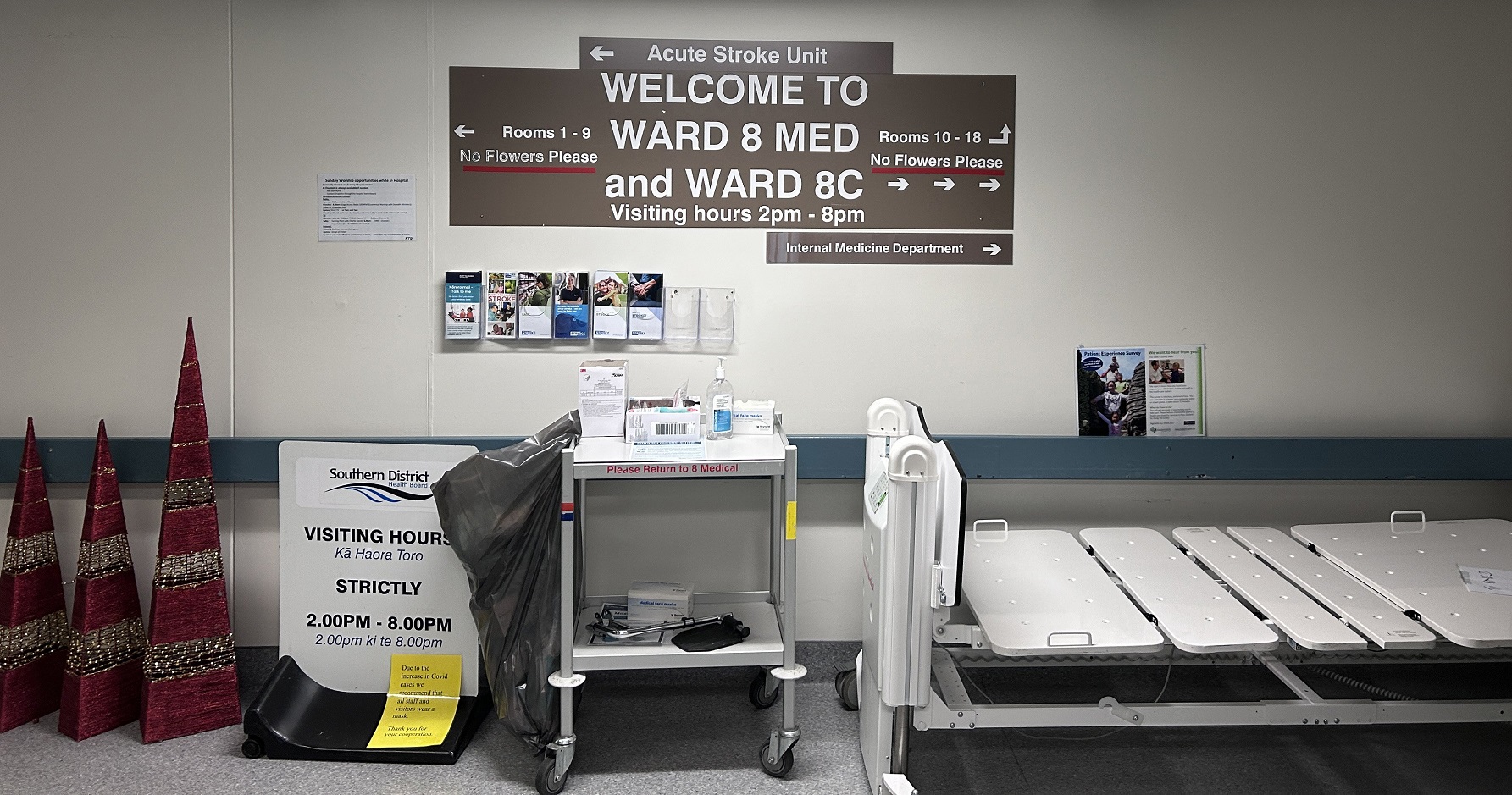

The 46-bed ward, known as ward 8 medical, is for frail, often elderly, dependent patients with acute illnesses and who usually cannot walk without help, including patients in an acute stroke unit with seven beds.
"The ward is constantly breaking and the fixing doesn’t fix things for long," one staff member said. "It’s like something from a low-income nation."
One of the rooms on the ward does not even have a toilet.
Hospital management has issued an apology for "distressing" disruption and has spent, and committed to spend, about a third of a multi-million "critical infrastructure" budget allocated four years ago.
Toilets
On one day last month, none of the toilets in the ward could be flushed, medics said, meaning all patients had to use commodes.
A sluice room, where the contents of commodes and bed pans are flushed away, was also out of action that day.
Staff said the same thing happened a few days later.
The room without a toilet is room 14, which has four beds in it.
When a patient needs the toilet, nursing staff have to find one of the ward’s limited number of commodes and use it by a patient’s bedside, or try to move patients to a toilet that is three rooms away.
"Patients are usually unable to walk that far," one staff member said.
Registered nurse Chris Daniels, who felt able to speak out as he is retiring soon, said: "It sticks out like dog’s balls that room 14 is very inadequate in terms of thinking or planning for the patients in there.
"If they have to wait for the toilet, as some do, they can end up incontinent, which happens. "
Sinks
Mr Daniels said maintenance was not done or took a long time and it was "always the plumbing" that broke, creating nightmarish working conditions.
It was "time consuming" trying to find sinks that had hot water or were not blocked.
Others said there are "many days" when there is no hot water on the ward, making showering impossible. On one recent night shift, some hot water taps were running brown.
The sink in room 11 has had no running water for more than a year, medics claimed. When they reported the problem they say they were told that fixing it would require turning off the water for more of the hospital.
Some single rooms that are used for isolating patients — for example, Covid-19 patients — do not have sinks outside them, preventing basic hygiene on entering and leaving the rooms.
Leaks
Leaks from the old roof are "not uncommon," medical staff said, including a recent leak over a patient’s bed space in the acute stroke unit.
The leaks affect the ward’s lighting.
One said: "During the recent heavy rain and flooding there was a very loud noise coming from the floor above which sounded like a washing machine, and the next morning it was found out there was actually a significant leak in the roof and the lights in a few rooms could not be used as the water had leaked into the lights in the ceiling."
Cramped conditions
The ward also suffers a chronic lack of space.
There is a shortage of the single rooms that are required for some patients, such as those suffering dementia who need a low stimulus environment to minimise confusion and help them stay calm.
Some patients who need a single room have to be placed in a four-bed room, including in the room for acute stroke patients.
Hallways are lined with equipment such as spare beds, mobility aids and hoists due to limited storage.
There is even a mysterious door, staff said, that carries a warning saying not to open it due to asbestos inside.
HNZ expenditure and apology
HNZ Southern’s interim regional operations manager, Tony Hampton, said the agency "apologised for any disruption caused to patients or staff due to maintenance issues at Dunedin hospital and understands this can be distressing".
In 2020, Health NZ Te Whatu Ora (HNZ) had approved $23.6 million "critical infrastructure" expenditure on Dunedin hospital to ensure it remains "safe and functioning" until the new hospital opens.
Most is unspent. So far, $6.2m has been spent, plus an additional $2.7m allocated to projects that would happen by the end of next year.
The projects with funds allocated included, among other things, a new hot and cold water system and electrical distribution boards in the ward block.
The oncology building’s roof is being repaired. There is also an ongoing programme of "waterproofing works," Mr Hampton said.
He said that when maintenance issues occur "we always work closely with clinical and operational teams to ensure disruption is minimised and we can continue to deliver safe patient care."











